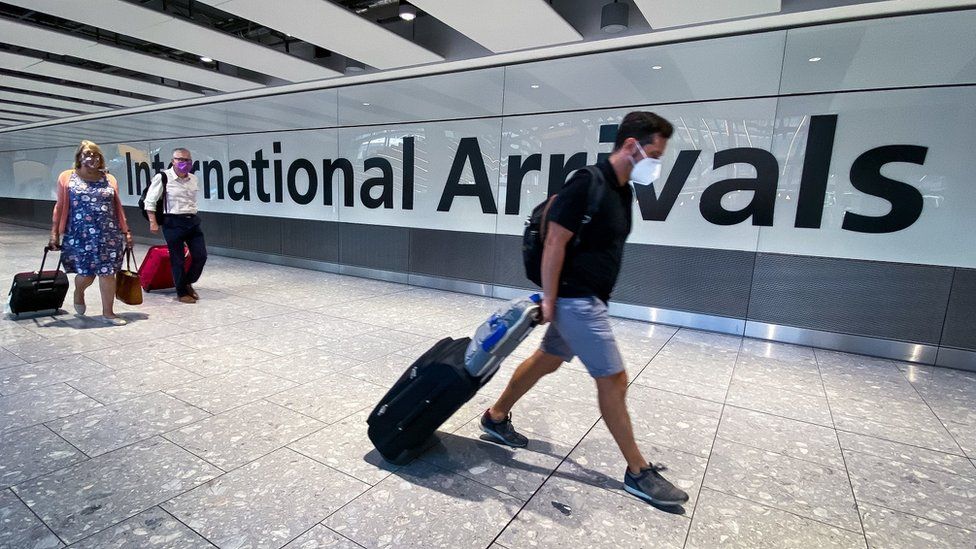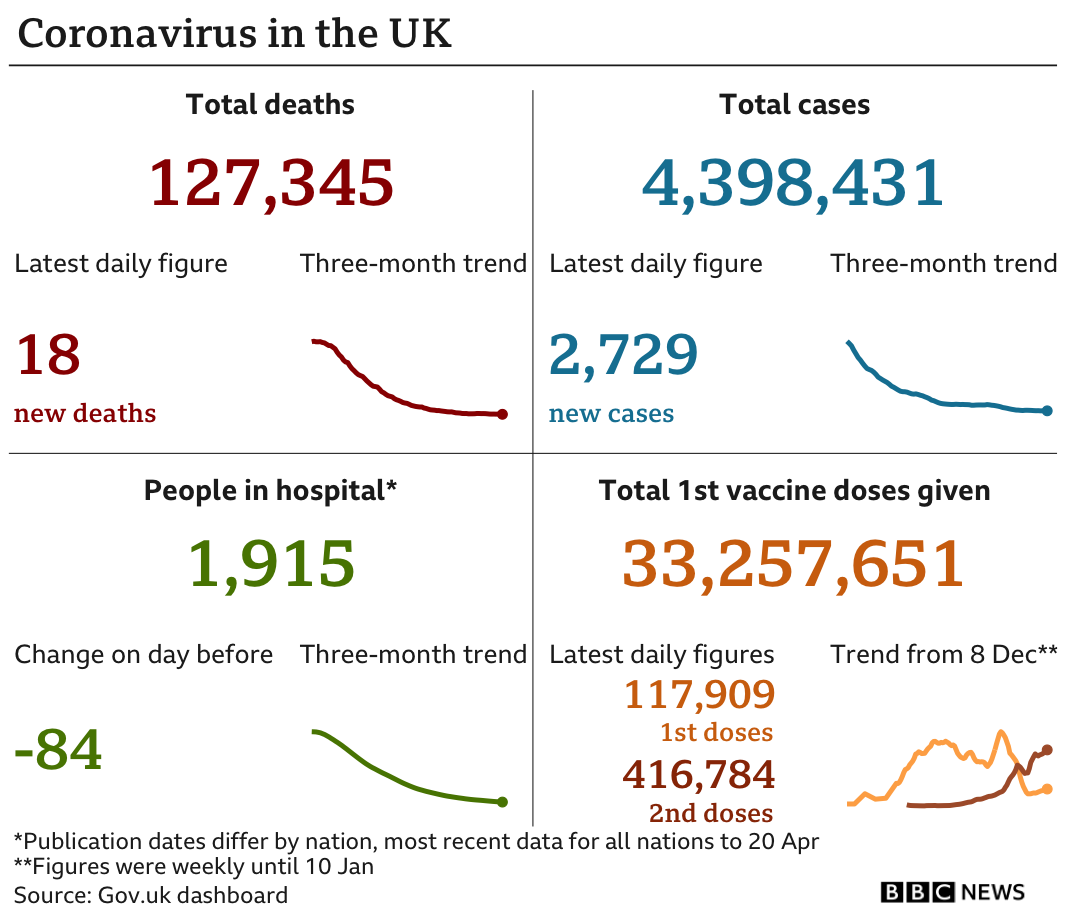
British and Irish nationals arriving in the UK from India must quarantine in a government-approved hotel, as new Covid travel curbs come into force.
India joined the UK’s “red list” on Friday, effectively banning travel.
The country has seen soaring infection rates, a rapidly rising death toll and the discovery of a new virus variant.
Travel to the UK is banned for people who have been in red-list countries in the past 10 days, except UK citizens and those with residency rights.
There are 40 countries on the government’s red list across the Middle East, Africa, Asia and South America. Countries can be added to the list with just a few hours’ notice.
There are specific rules for people arriving in each UK nation, including England, Scotland, Northern Ireland and Wales.
India has seen the world’s highest number of daily recorded Covid cases. At least two hospitals in the Indian capital Delhi are running out of oxygen.
Public Health England (PHE) confirmed on Thursday that a further 55 cases of the virus variant first identified in India – known as B.1.617 – were found in the UK in the latest week to 14 April.
PHE experts are currently unsure whether any of the mutations mean the variant can be transmitted more easily, is more deadly or can evade the effectiveness of vaccines or natural immunity.
Friday’s rule change means direct flights from India are still permitted, but UK and Irish nationals, as well as those with residency rights, must isolate in government-approved hotels – at their own cost – for 10 days.
The final scheduled commercial flight ahead of the rule change – Vistara flight VTI017 – landed at London’s Heathrow Airport at 18:48 on Thursday, according to FlightRadar24.
Four airlines asked for a total of eight extra flights to arrive at the west London airport before the 04:00 deadline but were refused permission by airport authorities.
Heathrow bosses are believed to have declined the requests to ensure pressures at the border, reported in recent weeks, were not exacerbated.
Later scheduled arrivals from Delhi and Mumbai to Heathrow, and Delhi to Gatwick Airport, were cancelled on Thursday, airport data showed.
Some of those who arrived before the red list change told the BBC they “couldn’t afford to stay away” and “had to get back to work”.
“Eventually, yesterday, a friend in the UK managed to book me a ticket from Mumbai to Manchester,” Biju Mathew, a social services manager from Walsall, said.
Demand for flights from India to the UK quickly became overwhelming after the government’s red list announcement, according to Suresh Kumar, chairman of specialist travel agents Indra Travel.
“A lot of people were hoping that the [UK] government would have made arrangements for people trying to get back,” he said. “They were disappointed.”
There was a scramble as people came in from suburbs and trekked from villages to the main Indian airports, he said.
Indra Travel tried to charter a plane to get 350 people back, but after initially being given the go-ahead and taking bookings, Mr Kumar said he was told that the flight would have to be cancelled as bringing in that many people would exceed a Covid quota.
But the firm did manage to bring in one charter flight from Amritsar to Birmingham, he said.
Speaking on Tuesday, Prime Minister Boris Johnson – who cancelled an official visit to India due to take place next Monday – said the addition to the red list was a “purely precautionary” step over a new coronavirus variant.
He said: “What we’re seeing in India is a result of a variant under investigation, it hasn’t yet been deemed a variant of concern – I think that was why there has been the delay.”
The B.1.617 variant was first noted internationally in October and first identified in the UK on 22 February.

Meanwhile, the UK recorded a further 2,729 new coronavirus cases on Thursday, with a further 18 deaths within 28 days of a positive test reported.
The number of second doses now stands at 11,192,601 – and a total of 33,257,651 people have so far received at least one vaccine dose.

Are you affected by Covid-19 in India? Please share your story by emailing haveyoursay@bbc.co.uk.
Please include a contact number if you are willing to speak to a BBC journalist. You can also get in touch in the following ways:
- WhatsApp: +44 7756 165803
- Tweet: @BBC_HaveYourSay
- Please read our terms & conditions and privacy policy
If you are reading this page and can’t see the form you will need to visit the mobile version of the BBC website to submit your question or comment or you can email us at HaveYourSay@bbc.co.uk. Please include your name, age and location with any submission.
